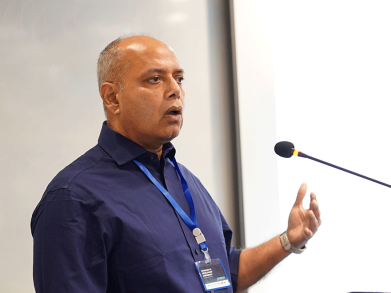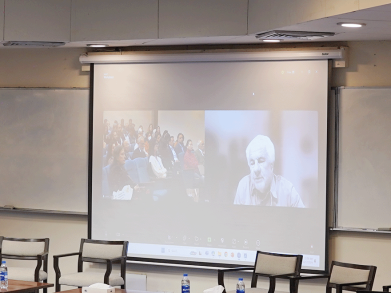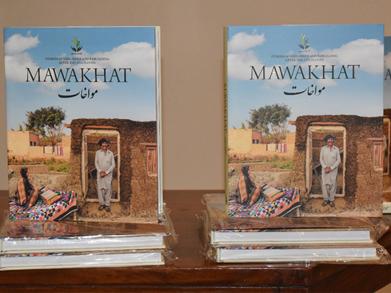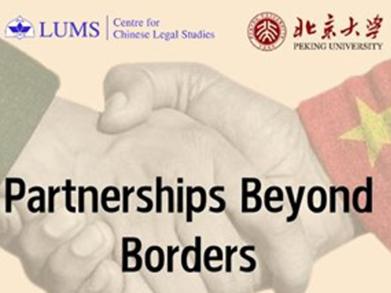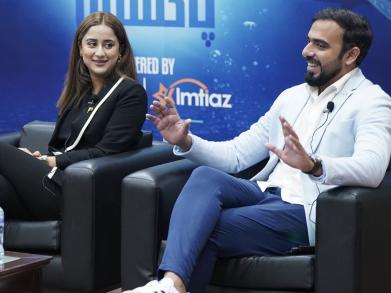LUMS Hosts the Launch of Seat 1C, a Powerful Memoir by Zafar Masud, President and CEO of The Bank of Punjab
LUMS recently hosted the launch of Seat 1C, a powerful memoir by Zafar Masud, President and CEO of The Bank of Punjab—and one of only two survivors of the 2020 plane crash.
The event drew a large audience, including students, faculty, staff, alumni, and members of the banking community. Vice Chancellor Dr. Ali Cheema welcomed guests and reflected on Mr. Masud’s remarkable strength, describing their first meeting as a moment of witnessing true courage and visionary thinking. He highlighted Mr. Masud’s dynamic leadership at Oil & Gas Development Company Limited (OGDCL) and the Bank of Punjab, nothing his rare blend of professional insight and passion for the arts. Quoting from the book’s introduction, Dr. Cheema emphasised its moving portrayal of survival, gratitude, and transformation, calling Seat 1C a story of hope and inspiration.
The event featured a heartfelt conversation between Mr. Masud and Nofel Daud, a LUMS alumnus (MBA ’03) and Group Head of Retail Banking at The Bank of Punjab. Rather than focusing on the crash itself, Mr. Masud shared how the book explores personal lessons, resilience, and transformation born from his experience. He described Seat 1C as a deeply introspective work dedicated to self-improvement, societal progress, and a call for more human-centric leadership.
Mr. Masud explained the philosophical foundations of the book, which is structured around ten key learnings drawn from his ‘30 seconds before death’ moment. He spoke about the role of context, rituals, and community in shaping recovery and growth, saying, “These ten learnings are actually an outcome of those 30 seconds... the life before death.”
The conversation also addressed themes such as the rigidity of social and religious rituals, survivor’s guilt, and the responsibility that comes with survival. “I believe I have to give more than anybody else. That’s the cost—and responsibility—of survival,” he said.
Describing the memoir as a personal legacy and a gift to the next generation—especially students—he urged young people to live with strength, meaning, and purpose. Reflecting on his upbringing and the values instilled by his parents, he shared: “I believe I was saved not for myself—but because God didn’t want my parents to suffer my loss. They’re such good people; they didn’t deserve that pain.”
There were also lighter, humanising moments—his fondness for Lahore, admiration for his parents, and stories from his childhood.
Mr. Masud shared that he had no specific structure in mind when he began writing, and that the book’s format evolved over time. While the writing process was a learning experience, reading the published book brought even deeper insights. He noted that he read extensively during and after writing and credited the community for inspiring him to share his story.
He also spoke openly about undergoing psychotherapy after the book’s release, stating that it brought up new emotional layers, despite having had therapy after the crash itself.
Reading from the chapter titled Legacy, Mr. Masud encouraged young people, “Do not wait to be established in your career and life before you begin to think about your legacy... Return to the grander schemes you harboured as children.”
Dr. Muhammad Amjad Saqib, Founder of Akhuwat Foundation, shared an excerpt from the upcoming Urdu translation, which he is currently developing.
The event included a vibrant Q&A session, with questions ranging from philosophical reflections on love and trauma to literary themes and suggestions for a film adaptation. Mr. Masud responded with openness, humour, and poetic references, highlighting the symbolic importance of the ‘32nd’ moment or chapter, which held personal significance for him.
The discussion concluded with reflections on the relationship between personal experience and academic insight, and how Seat 1C weaves both into a meaningful narrative. Mr. Masud expressed deep gratitude and a desire to share his journey with others. He also emphasised the importance of advocacy, particularly around transportation safety, and shared his intention to raise awareness through a dedicated foundation.

















